Tranquilizers (anxiolytics) - psychotropic drugs, indicated mainly for the treatment and elimination of anxiety, anxiety, fear, emotional tension, while they practically do not impair cognitive functions. On the modern pharmaceutical market, there is a wide list of various sedatives that can be purchased without a doctor's prescription.
Benzodiazepine derivatives
The most famous and common tranquilizers with pronounced anti-phobic and anti-anxiety effects. They are divided into 3 subgroups: drugs with long, medium and short duration of action.
Long-acting anxiolytics (Phenazepam, Chlordiazepoxide, Diazepam) are powerful drugs and have many unwanted side effects that override their merits and lead to serious complications, so they are rarely sold without a prescription.
Medium and short (daytime tranquilizers) drugs have fewer side effects and are safer and can be purchased without a prescription, but it is still recommended to take them only after consulting a doctor.
Medium-acting drugs
Alprazolam (Xanax, Alzolam, Helex, Zolomax)
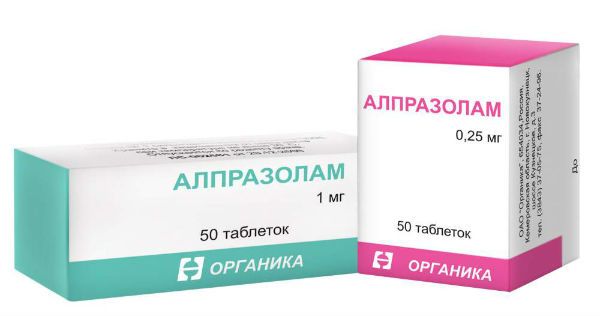
The active ingredient is alprazolam.
It is used as a remedy that most actively eliminates panic attacks and acts as a vegetative stabilizer. Also, the drug is prescribed for sleep deterioration, loss of appetite, loss of interest in the outside world.
At the beginning of treatment, a minimum dose is prescribed, which varies from 0.25 to 0.5 milligram 3 times a day, then the dose can be gradually increased to a maximum of 4.5 milligrams. For debilitated and elderly patients, the initial dose is 0.25 milligrams 2-3 times a day. The dose should be reduced gradually to avoid withdrawal symptoms.
Side effects: possible rash, itching, urinary incontinence, development of leukopenia, anemia, impaired renal function, etc.
Contraindications: myasthenia gravis, shock, coma, acute alcohol poisoning, pregnancy, age up to 18 years, intolerance to the components of the drug, pregnancy, lactation, kidney or liver dysfunction.
Lorazepam (Lorafen)
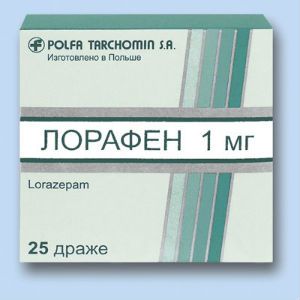
Available in tablets, dragees; the active ingredient is lorazepam.
Medication of medium duration of action has a hypnotic and powerful antiphobic effect, is effectively used in all types of neuroses for the treatment of senestopathic, hypochondriacal disorders, helps to stabilize the autonomic nervous system.
Adults and adolescents take 0.5-4 milligrams 1-3 times a day. The maximum daily dose should not exceed 10 milligrams.
Side effects: ataxia, muscle weakness, dizziness, dysphagia, dry mouth, itching, skin rash.
Contraindications: angle-closure glaucoma, myasthenia gravis, acute alcohol intoxication, hypersensitivity to lorazepam, lactation.
During pregnancy, use only under strict indications and always under the supervision of a physician. Use with caution in case of impaired renal function, suspected sleep apnea, shock, epilepsy, lung disease.
Medazepam (Rudotel)
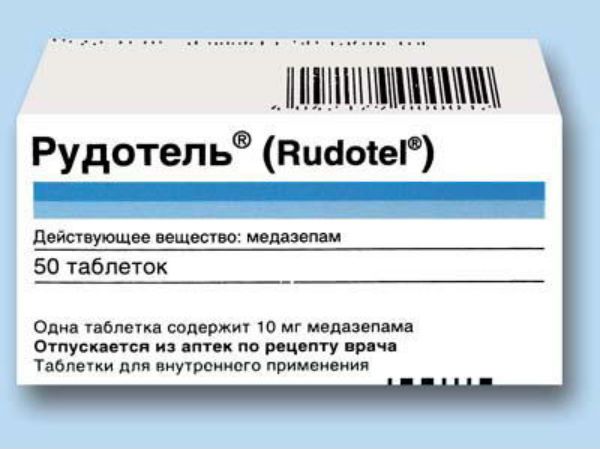
The active ingredient is medazepam.
Eliminates psychoneurotic stress, fear, anxiety, motor excitement, increased fussiness. Also, the medicine stabilizes the work of the autonomic nervous system, helps to restore emotional balance and an adequate assessment of one's own illness.
The tablets are taken 2-3 times a day, starting at a dosage of 5 milligrams; the dose is gradually increased to 30 milligrams per day. It is rarely allowed to take 40 milligrams of the drug. Elderly people and adolescents - 10-20 milligrams per day; children 10 years and older - 2 milligrams per day. The duration of therapy is no more than 60 days. After a month, the course can be repeated.
Side effects: dry mouth, drop in blood pressure, disinhibition, depression, disorientation, confusion, dyspeptic disorders.
Contraindications: intolerance to medazepam, pregnancy, lactation, myasthenia gravis, kidney or liver pathology, various forms of addiction (alcoholic, narcotic), children under 10 years of age.
In case of respiratory failure, intraocular hypertension, cerebellar ataxia, Medazepam tablets are prescribed with caution.
Daytime tranquilizers
Drugs with a predominant anti-anxiety effect and minimal sedative, muscle relaxant and hypnotic properties.
The following medicines can be purchased without a doctor's prescription:
Gidazepam
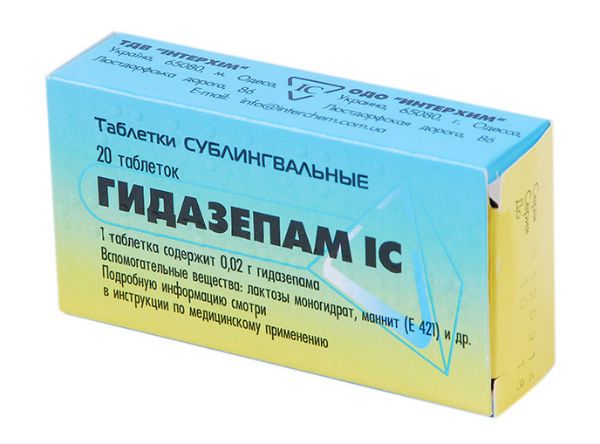
The active ingredient is gidazepam.
Eliminates irritability, migraine, soothes, softens withdrawal symptoms with alcoholism, improves sleep.
Take orally 20-50 milligrams 3 times a day. The average dose for the treatment of patients with neurosis-like and neurotic disorders is 60-150 milligrams per day, for migraines - 40-60 milligrams. The course of treatment is from 7 days to 1-2 months.
Side effects: drowsiness, slowing down of the speed of motor and mental reactions, drug dependence, gait disturbance.
Contraindications: hepatic or renal failure, myasthenia gravis, pregnancy, hypersensitivity, lactation.
Oxazepam (Nozepam, Tazepam)
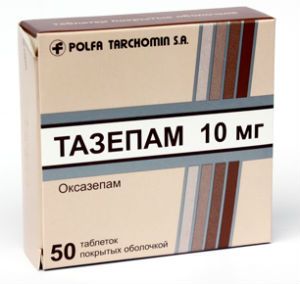
The active ingredient is oxazepam.
It is prescribed for neuroses, psychovegetative disorders (for example, disorders in women associated with menopause or severe premenstrual syndrome). As part of complex therapy, the drug is used for reactive depression. The dosage is set depending on the indications, the patient's age and the development of the therapeutic effect.
The daily dose ranges from 10 to 120 milligrams.
Side effects: fatigue, difficulty concentrating, dulling emotions, paradoxical reactions (fear, hallucinations, insomnia, etc.), nausea, vomiting, allergic reaction, urinary retention, impaired renal function.
Contraindications: acute alcohol intoxication, coma, shock, myasthenia gravis, angle-closure glaucoma, respiratory failure, pregnancy, lactation, children under 6 years of age, intolerance to the components of the drug.
Prazepam (Demetrine)
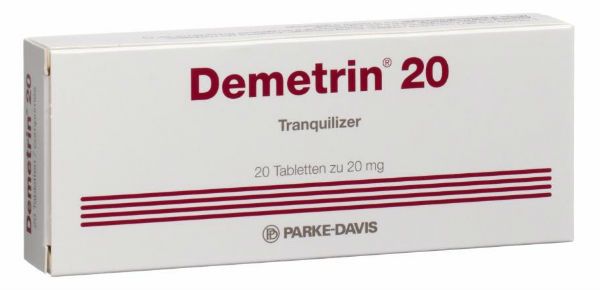
The active ingredient is prazepam.
The drug stabilizes affective reactivity, normalizes sleep, improves mood, reduces tension and fear, and at the same time does not reduce concentration and reflexes. In addition, the tablets help to get rid of functional autonomic disorders in various psychosomatic disorders.
For adults, the recommended daily dose is 20 milligrams, that is, 2 tablets (0.5 tablets in the morning, 0.5 in the afternoon and 1 in the evening). For children from 3 to 12 years old, the medicine is prescribed in 10-15 milligrams, that is, 2-3 times a day, 0.5 tablets.
Side effects: feeling a little tired, dizziness.
Contraindications: severe renal or liver dysfunction, myasthenia gravis. If necessary and only with the permission of a doctor, Prazepam is prescribed during pregnancy and lactation.
Tofisopam (Grandaxin)
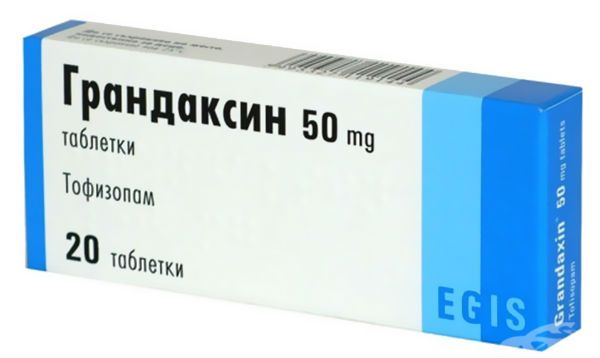
Available in tablets, powder; the active substance is tofisopam.
The drug is prescribed for the treatment of autonomic disorders, decreased activity, neuroses, severe stress. Also with menopause, premenstrual syndrome, myasthenia gravis, as part of complex treatment for cardialgia.
The daily dose for adults is 150 milligrams. Frequency rate of admission - 3 times a day.
Side effects: nausea, decreased appetite, depression of the respiratory centers, pain in the muscles, dry mucous membranes, convulsions, confusion, rarely - jaundice.
Contraindications: 1 trimester of pregnancy, lactation, age up to 18 years, severe depression, intolerance to the components of the drug, respiratory arrest syndrome during sleep.
Trioxazine
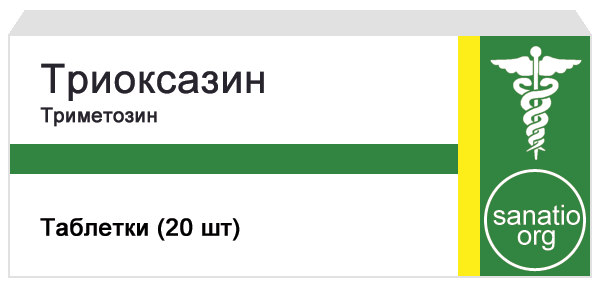
The active ingredient is trimethosin.
Reduces feelings of anxiety, fear, emotional instability.
Adults are prescribed at a dosage of 0.5-1.5 grams per day. If necessary, the dose can be increased to 2.5-3 grams per day. Children from 1 to 6 years old are prescribed 0.5 tablets 3-5 times a day; from 7 to 12 years old - 1 tablet 3-5 times a day.
Side effects: weakness, lethargy, drowsiness, dry mouth.
Contraindications: drug hypersensitivity.
New generation tranquilizers of non-benzodiazepine nature
They help to eliminate almost the entire complex of anxiety-neurotic manifestations, ensure the maintenance of a habitual lifestyle, social activity, while being safe, that is, they have a minimum number of side effects and unwanted reactions.
OTC are:
Afobazol
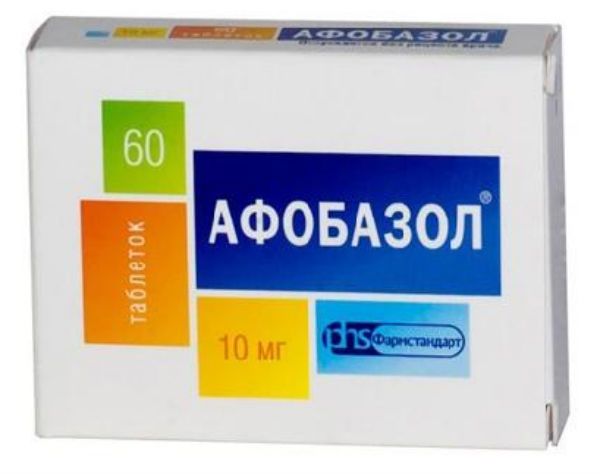
The active ingredient is afobazole.
The medicine is used in adults with neurasthenia, generalized anxiety disorders, impaired adaptation, bronchial asthma.
Consume orally after meals. The optimal single dose is 10 milligrams, the daily dose is 30 milligrams. If necessary, the maximum dose can be increased to 60 milligrams. The course of treatment is 2-4 weeks.
Side effects: rarely - headache, allergic reaction.
Contraindications: pregnancy, lactation, galactose intolerance, hypersensitivity to the active substance, age up to 18 years.
Benaktizin (Amisil)
The active ingredient is benactisin.
In neurological and psychiatric practice, the drug is prescribed as a sedative for neuroses, which are accompanied by fear, anxious stress, mental depression.
Take orally after meals 1-2 milligrams 1-4 times a day; the course of treatment is 4-6 weeks.
Side effects: dizziness, constipation, nausea, tachycardia, urinary retention.
Contraindications: prostate adenoma, glaucoma, hypersensitivity, lactation, pregnancy.
Buspirone (Spitomin)
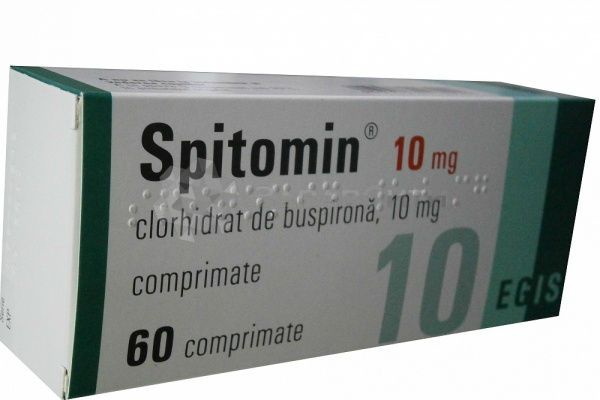
The active ingredient is buspirone hydrochloride.
It is used to treat anxiety states of various etiologies, especially neuroses, accompanied by a feeling of anxiety, anxiety, irritability, tension.
At the beginning of treatment, 5 milligrams are prescribed 2-3 times a day. To achieve the maximum therapeutic effect, the daily dose is gradually increased to 15-30 milligrams. The tablets should be drunk at the same time of the day, without chewing, washed down with water.
Side effects: nonspecific chest pain, hypertension, loss of consciousness, heart failure, changes in blood counts, bradycardia, nightmares, etc.
Contraindications: age up to 18 years, pregnancy, lactation, renal failure, myasthenia gravis, congestive glaucoma.
Mebikar (Mebix, Adaptol)
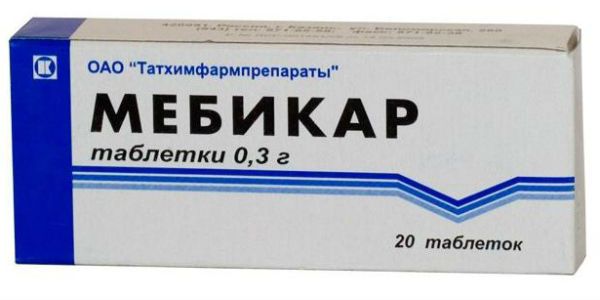
The active ingredient isdione.
The drug is intended for the treatment of neurotic disorders (emotional lability, panic disorders, irritability, anxiety, etc.) resulting from exhausting neuropsychic, psychoemotional and physical exertion. Also, tablets are indicated for the treatment of patients with ischemic myocardial disease, rehabilitation after a heart attack, to reduce the craving for smoking, with neurosis-like conditions in patients with alcoholism.
Take orally 0.3-0.9 grams 2-3 times a day (regardless of food). The maximum daily dosage is 10 grams. The course for therapy and prevention is from a week to 6 months.
Side effects: allergic reaction, hyperthermia, decrease in body temperature and blood pressure, dyspeptic disorders.
Contraindications: hypersensitivity to the active substance of the drug.
Mexidol
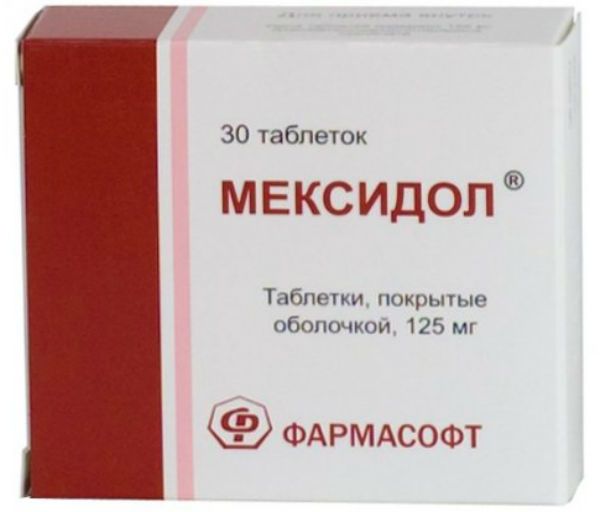
The active ingredient is ethylmethylhydroxypyridine succinate.
The medicine has antioxidant, tranquilizing, nootropic, antihypoxic, membrane stabilizing properties. In addition, it helps to improve memory, has a pronounced stress-protective effect (increases the body's resistance to stress), has the ability to stop and prevent seizures.
For the treatment of nerve-like and neurotic conditions, take orally 125-250 milligrams; the maximum daily dose is 800 milligrams (6 tablets). The duration of therapy is 2-6 weeks.
Side effects: Allergic reactions are possible.
Contraindications: acute renal or hepatic failure, intolerance to the components of the drug, age up to 18 years, lactation, pregnancy.
Oxylidine
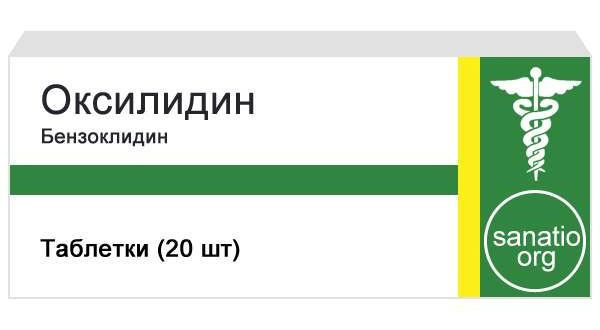
The active ingredient is benzoclidine hydrochloride.
Has a calming effect, reduces the excitability of the nervous system, enhances the effect of painkillers, hypnotics and narcotic drugs. It is used for all types of neuroses, cerebrovascular accident, atherosclerosis.
At the beginning of treatment, take 0.02 grams 3-4 times a day before meals; then the daily dose is increased to 0.2-0.3 grams. After achieving the desired effect, the dose must be reduced to 0.02 grams per day. The duration of treatment is from 2 weeks to 2 months.
Side effects: nausea, allergic reaction.
Contraindications: severe hypertension, kidney disease.
Stresam
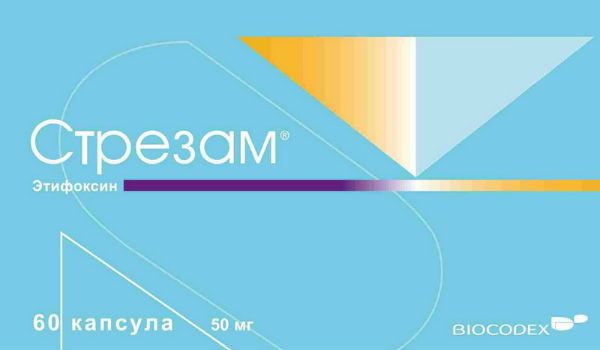
Available in capsules; the active ingredient is etifoxine hydrochloride.
It stabilizes and significantly improves the condition with a feeling of fear, anxiety disorders, depressed mood, without causing drowsiness and lethargy, allows you to lead a normal life.
Take orally, regardless of food intake, 50 milligrams (1 capsule) three times a day or 100 milligrams (2 capsules) 2 times a day. The duration of treatment ranges from several days to 4-6 weeks.
Side effects: urticaria, skin rashes, Quincke's edema.
Contraindications: myasthenia gravis, shock conditions, severe liver or kidney dysfunction, age up to 18 years, hypersensitivity to the active substance of the drug, lactation, pregnancy.
Phenibut (Anvifen, Noofen)
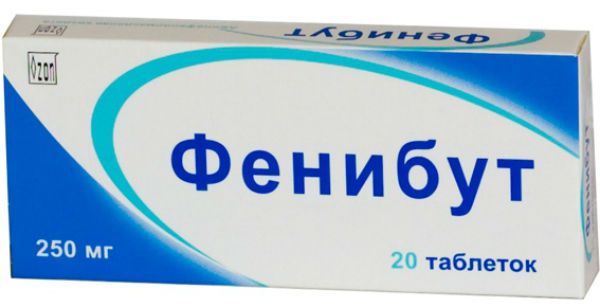
The active ingredient is aminophenylbutyric acid.
The tranquilizing effect of the drug is realized by reducing the excitability of the structures of the brain, which are responsible for inhibition and emotions. The main indications for the use of Phenibut are: anxiety disorders, symptoms of asthenic syndrome, memory disorder, decreased emotional activity, insomnia, etc.
Side effects: nausea, blood pressure surges, headaches.
Contraindications: pregnancy, lactation, hypersensitivity to the drug, age up to 8 years, renal failure.
During pregnancy and breastfeeding
Almost all of the drugs listed above have a toxic effect on the fetus and increase the risk of developing congenital defects, therefore, during pregnancy, an anxiolytic can be prescribed exclusively by a doctor, and only if urgently needed.
For children
At the age of 3 to 18 years, with the permission of a doctor, drugs such as Prazepam (Demetrin), Trioxazine, Phenibut, Oxazepam (Nosepam, Tazepam) can be prescribed.
For the elderly
In the absence of contraindications, all drugs are allowed only in lower doses. The required dosage is prescribed by the attending physician.

